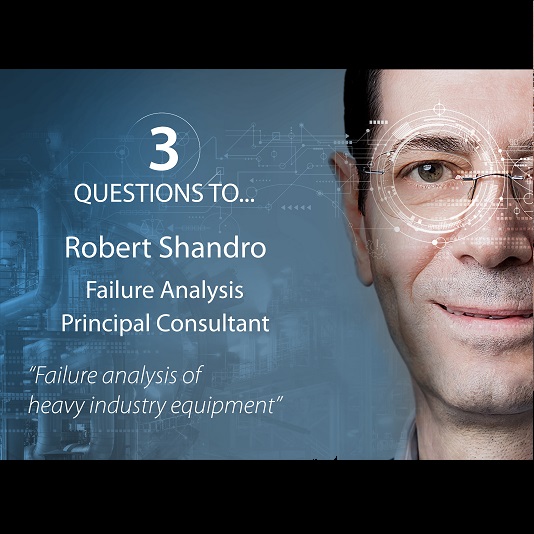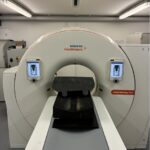In heavy industry, half of all failures are caused by errors in the design or selection of materials, while 40% are caused by operational conditions. The remaining 10% arise from external factors. The objective of failure analysis is to understand the root causes of these problems in order to improve the reliability, safety and efficiency of operations.
Robert Shandro, Cetim engineer and failure analysis principal consultant, explains.
To learn more on the topic and exchange with our expert,
join our webinar on February 22nd – 4pm/4.45pm (GMT+8)
When it comes to the heavy industry, which components are the most critical in terms of failure?
Robert Shandro: In the heavy industry, operations often involve complex equipment and intensive processes. Several components are therefore critical, especially equipment that is fundamental to production such as machine tools, power generators, chemical processes and industrial furnaces.
A large section of this industry relies on mechanical power transmission components, i.e. components and machines that are tasked with transferring energy from a source to an application. This is the case for rotating equipment, shaft lines on boats, etc. These items are often so bulky that having spare parts is not an option. This makes sourcing them a challenge.
Furthermore, the consequences of damage to these components can be catastrophic. Repair costs are high. Procurement and return-to-service times can be very long. One such example is the steel industry, where the interruption of continuous casting results in major losses. The risk of human and environmental accident can also have serious consequences, given the size of the parts and the nature of the activities, such as in the petrochemical industry. Lastly, the associated financial losses invariably run into millions of dollars. Without an appropriate response, these problems can recur.
How does failure analysis help to prevent these risks?
R. S.: Failure analysis plays a vital role in preventing damage by identifying risk factors and, more importantly, recommending corrective actions.
To achieve this objective, it is essential to adopt a holistic perspective when analysing failures focusing not only on the failed part but examining the entire system. This approach simplifies the implementation of appropriate corrective solutions. Furthermore, by understanding potential failure modes, it is possible to develop tailored preventive maintenance programmes. This includes regular replacement of parts subject to wear, continuous monitoring of equipment health and early detection of signs of potential failure.
A recent study by the US Department of Energy also estimated that predictive maintenance reduces stoppages and failures by 45% in heavy industry. In this regard, it is worthwhile to use operational data from systems to optimise their correction through digital twins, for example. In the future, the effectiveness of predictive maintenance will be further enhanced by the application of artificial intelligence (AI) tools to operational data.
How can industrial manufacturers reduce these risks in their activities?
R. S.: In addition to preventive and predictive maintenance, manufacturers can rely on performance monitoring, the use of innovative technologies (IoT, AI) as well as staff training and qualification.
Cetim’s failure analysis training courses are a good way of ensuring that they adopt the right reflexes before an expert is called into the field. For example: making initial findings at the site of the damage, protecting damaged areas, manually drawing a map of defective parts, etc. Through this training and feedback, decisions can be made more quickly and reliably (which is essential during a crisis). As a result, there is a significant improvement in communication with the experts and a relationship of trust is established. Failure analysis is much more than a simple diagnosis; it is a genuine driver of progress for the company, and in-house staff training has a key role to play!
To learn more and exchange with Robert Shandro on the topic,
join our free webinar on February 22nd, – 4pm/4.45pm (GMT+8).
About Robert Shandro:
Mechanical Engineering and Materials Science – Specialist in failure investigation, forensic engineering and condition assessment with more than 30 years of consulting experience in Energy, Aerospace, Transportation, Shipbuilding and Public Works. Member of French delegation for ISO TC60 (Technical Committee), Expert in load capacity calculation of gears, terminologies, notation, strength and quality of materials for gears.
His areas of expertise :
- Failure analysis of a wide range of mechanical equipment/components and structural facilities
- Expert witness for litigation and insurance claims
- Expert consultant and technical support on patent litigations
- Forensic engineering investigation of industrial failures and accidents
- Design, verification and failure analysis of mechanical power transmission components.
- Condition and remnant life assessment of mechanical power transmission components
- Standardization works (ISO TC60)




